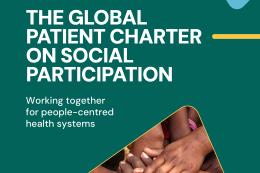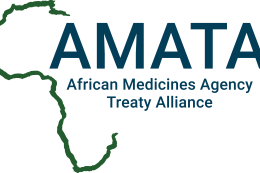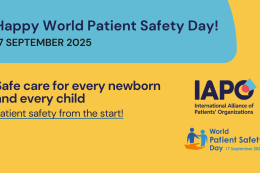Sovereignty preventing global drug regulation harmonization-International Conference of Drug Regulatory Authorities
The International Conference of Drug Regulatory Authorities (ICDRA) is an annual event hosted for the benefit of the WHO Member States and their national medicines regulatory authorities (NMRAs); many non-State actors attend a pre-ICDRA conference to share their views with NMRAs. The 17th pre-ICDRA and ICDRA were hosted 27 November to 2 December 2016 in Cape Town South Africa
ICDRA is an influential forum that helps to promote the exchange of information and to strengthen collaborative approaches to issues of common concern for NMRAs. The ICDRA helps NMRAs to have an early warning of what medicines and medical device issues are coming up and gives them an ‘event horizon scanning’ opportunity to develop their national regulatory strategies to meet any emerging threats and exploit any opportunities in medicine and medical device regulation.

The conference, regular since 1980, very important in helping establish international consensus and harmonization of regulation to improve the safety, efficacy, and quality of innovative medicines and medical devices globally.
This year the Conference discussed the important issue of setting-up of African Medicines Agency (AMA) The AMA is like the European Medicines Agency and ICDRA heard that it will be established by 2018. See IAPO Article.
In an increasingly globalized pharmaceutical trade being driven by bilateral and other 'block' trade agreements, harmonization of medicines regulation is now a priority for patients. Patients need a strong global medicine and device regulatory system that is consistent, comprehensive and that supports safety, quality, availability, accessibility and equity for all patients. Patients want their NMRAs to be more participatory, transparent and accountable to them. They welcome regulations harmonized to global standards.
ICDRA has a unique feature that there is a patients' and non-State actors' forum called the pre-ICDRA preceding the main event. While ICDRA is a closed conference, where only NMRAs participate, pre-ICDRA is an open event where all the international and regional NGOs participate in to air their viewpoints and concerns. This year IAPO participated in the pre-ICDRA in a live stream on why regulatory system strengthening matters to patients. We also sat on a panel to discuss what a patient expects from regulators and industry in regulating medical devices as we had responded to a consultation on WHO Model Regulatory Framework For Medical Devices.
NMRAs used the pre-ICDRA to discuss the challenges they face with other stakeholders. They are continually faced with problems emerging from the globalization and extension of free trade agreements as their countries open up to the global medicines and devices market. The consistent improvement and sophistication of products and devices, through the adoption of new technologies, makes many regulators feel under-skilled and need of specialist knowledge to be able to evaluate this innovation like biotherapeutic medicines and new Health Apps. NMRAS called for investment in training and capacity building to strengthen the regulatory workforce and systems.
Manufacturers also use the pre-ICDRA to air their concerns. If universal health coverage (UHC) is to be achieved by 2030 in pursuit of sustainable development goals, then manufacturers must have one regulation, one authority, one product and one-time registration. Trying to meet the different requirements of 194 UN countries and their NMRAs delays access to innovative medicines and devices, and adds to the administrative costs and frustration for the manufacturers.
Pre-ICDRA then heard from big international NGOs and notable researchers and academics. They felt that Sovereignty is often being used by States to delay harmonization of medicines and devices regulatory regimes. The constant re-invention of the wheel by NMRAS in their national regulatory pathways and guidelines adds costs and delays, having a huge impact on access. Many small manufacturers of innovative products are discouraged from becoming global players. Sovereignty is being used to delay harmonization of regulations.
The way forward now is to set-up regional regulatory bodies like the European Medicines Agency (one agency and one registration for access to 28 countries) in each region. It is proposed to look at setting up regional medicines agency around regional economy cooperation bodies. In Africa, this would be five regional bodies like the East African Community (EAC) and Southern African Development Community (SADC). The hope is that these regional bodies will then come together and form a supra-regulatory body like an African Medicines Agency.
The take-home message was that Sustainable Development Goal 3 needs global harmonized regulatory systems. Sovereignty used to prevent harmonization is a pot-hole in this road to hitting the SDG 2030 targets on health.
For further insight and delegate comments see Twitter for #patientsRwaiting and #preICDRA2016.
http://www.icdra.co.za/ Cape Town - South Africa Pre-ICDRA: 27 - 28 November 2016 ICDRA: 29 November - 02 December 2016



